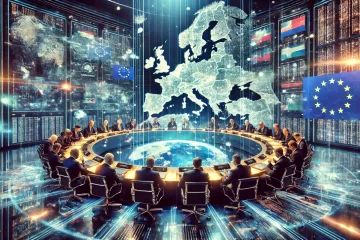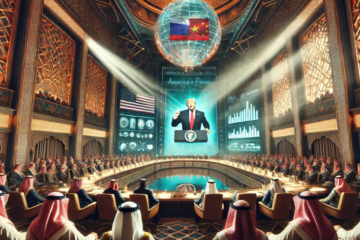Although Belarus is typically associated with Russia and the East, Belarusian President Viktor Lukashenko recently stated that he believes that Belarus must cultivate a balance between the East and the West.
Such rhetoric is unusual for the head of state of a country that claims to have brotherly relations with the Russian Federation and is a founding member of the Eurasian Economic Union (EAEU or EEU)—but not necessarily surprising.
Belarus and the European Union: Embargoes, Diplomacy, and Slow Progress
Belarus and the European Union have been steadily increasing their cooperation for several years. In 2019, Belarus welcomed the foreign ministers of both Hungary and Austria to the country to assist them in opening embassies. These visits, in conjunction with high-level diplomatic visits to Italy and Poland by Belarusian officials, reveals, more than anything, Belarus’ willingness to work with the West—and hedge against Russia.
While it’s likely that economic matters are pushing Belarus to work more closely with the E.U., the growing state of rapprochement is nevertheless a positive development. Increased trade and investment between Belarus and the E.U. will provide more opportunities for social, political, and economic engagement.
Despite the overall improvement in E.U.-Belarus relations, there’s been little to show in terms of concrete partnership agreements. This primarily has to do with Lithuanian concerns over a Belarusian power plant located close to the city of Vilnius, Lithuania’s capital. Lithuania has repeatedly pushed for the power plant’s closure, citing risks to the safety and well-being of its citizens. Furthermore, some European states continue to impose new conditions in the ongoing negotiations for visa-free travel.
The European Union has a policy of promoting and advocating for human rights and democracy in Belarus. It encourages these values by introducing new mechanisms and so-called “democratic” clauses into negotiations with Belarus to induce changes to Belarusian policies that don’t align with European values. Belarus’ continued use of capital punishment is a particularly contentious issue for the E.U.
Belarus and Russia: An Enduring But Turbulent Relationship
Despite the close bilateral relationship between Russia and Belarus, the two countries have recently been increasingly at odds with one another. In January of 2019, Russia began to gradually increase its mineral extraction tax and reduce its oil export duty. While this is undoubtedly financially beneficial for Russia, it means that Belarus will lose one of the main benefits of its relationship with Russia: cheap oil and revenue from Russian oil duties. Over the next five years, Belarus is expected to lose eight to twelve billion dollars (U.S.)—even as it remains dependent on Russian oil and gas.
In spite of this disagreement, however, Russia and Belarus continue to engage in negotiations to further the implementation of the 1999 Union State Treaty, which established goals of introducing a single currency, customs regulations, courts, and legislative chambers for Russia and Belarus.
Where Does This Leave Belarus?
It’s unlikely that Belarus would willingly cede its sovereignty. Perhaps most importantly, entering into a union with Russia would mean giving up much of the power he currently enjoys. Moreover, there is no strong political will for a Russia-Belarus union.
When looking at Belarus’ relationship with the European Union alongside its relationship with Russia, it comes as no surprise that Lukashenko himself is walking a tight rope. On one hand, Belarus’s traditional slant has always been towards Russia and Eurasia. However, the E.U. can offer much in the way of trade, energy, and economic diversification—and is a way for Minsk to hedge against deterioration of its relationship with Moscow. For two decades, Belarus has played a game of “Monkey in the Middle.” Amidst increasing tensions between Russia and the West, however, it remains to be seen how much longer it can continue to do so.



